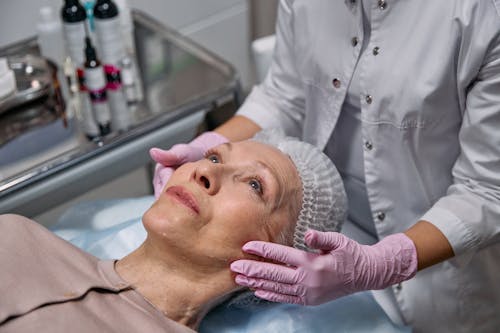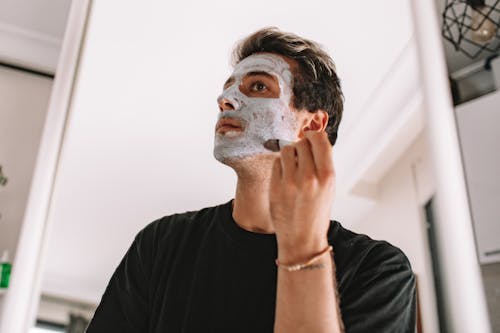
Introduction
Facial care goes beyond vanity; it’s a fundamental aspect of self-care and overall health. Our skin, particularly on the face, is constantly exposed to environmental pollutants, UV radiation, and other stressors. Proper facial care not only enhances our appearance but also plays a crucial role in maintaining skin health, preventing premature aging, and boosting self-confidence. This article delves into the importance of facial care, effective skincare routines, ingredients to look for, and professional treatments that can help achieve glowing and healthy skin.
Understanding Your Skin
Before diving into facial care routines, it’s essential to understand the basics of skin anatomy and physiology. The skin is the body’s largest organ, consisting of multiple layers with distinct functions. The outermost layer, the epidermis, acts as a barrier against external factors, while the dermis provides structural support and houses essential structures such as hair follicles and sweat glands.
Facial skin is more delicate and prone to sensitivity compared to skin on other parts of the body. Factors such as genetics, age, lifestyle habits, and environmental exposure influence skin health and appearance. Understanding your skin type (e.g., dry, oily, combination, sensitive) is crucial for selecting appropriate skincare products and routines.
Benefits of Facial Care
Investing time and effort in a consistent facial care regimen offers numerous benefits:
- Healthy Skin Maintenance: Cleansing, moisturizing, and protecting your skin with sunscreen are essential daily habits that help maintain skin health and prevent conditions such as acne, dryness, and irritation.
- Anti-Aging Effects: Proper skincare can help minimize the appearance of fine lines, wrinkles, and age spots, promoting a more youthful and radiant complexion over time.
- Enhanced Self-Confidence: Clear, healthy skin enhances self-esteem and confidence, allowing individuals to feel comfortable and empowered in their appearance.
- Prevention of Skin Conditions: Regular exfoliation and targeted treatments can prevent or manage common skin issues such as acne, hyperpigmentation, and rosacea.
Essential Components of Facial Care
A comprehensive facial care routine typically includes the following steps:
- Cleansing: Using a gentle cleanser suited to your skin type removes dirt, oil, and impurities without stripping away natural oils.
- Exfoliation: Regular exfoliation removes dead skin cells, promoting cell turnover and revealing smoother, brighter skin. Exfoliating ingredients may include alpha hydroxy acids (AHAs), beta hydroxy acids (BHAs), or gentle physical exfoliants.
- Moisturizing: Hydrating the skin with a moisturizer suitable for your skin type helps maintain its natural moisture balance and prevents dryness.
- Sun Protection: Applying sunscreen with a broad-spectrum SPF of 30 or higher protects against UV radiation, which can cause premature aging, sunburn, and skin cancer.
- Treatment Serums: Targeted serums containing active ingredients like vitamin C, retinoids, or hyaluronic acid address specific skin concerns such as hyperpigmentation, wrinkles, or hydration.
Choosing Skincare Products Wisely
Selecting the right skincare products involves understanding ingredient labels and their potential benefits:
- Antioxidants: Ingredients like vitamin C and E neutralize free radicals, which can damage skin cells and accelerate aging.
- Hyaluronic Acid: This hydrating ingredient attracts moisture to the skin, plumping fine lines and improving overall hydration.
- Retinoids: Derived from vitamin A, retinoids promote cell turnover, stimulate collagen production, and improve skin texture and tone.
- Peptides: These amino acid compounds support collagen synthesis, helping to firm and rejuvenate the skin.
- Botanical Extracts: Natural extracts such as green tea, chamomile, and aloe vera possess anti-inflammatory and soothing properties, suitable for sensitive skin types.
Professional Facial Treatments
In addition to home skincare routines, professional treatments performed by licensed estheticians or dermatologists can enhance skin health and address specific concerns:
- Facials: Customized facials incorporate cleansing, exfoliation, extraction, and mask application tailored to individual skin types and concerns.
- Chemical Peels: Chemical peels exfoliate the skin’s outer layer, promoting cell turnover and improving texture, tone, and clarity.
- Microdermabrasion: This exfoliation technique uses a diamond-tipped device or crystals to remove dead skin cells and stimulate collagen production.
- Laser Therapy: Laser treatments target specific skin issues such as acne scars, pigmentation irregularities, and signs of aging, promoting smoother and more even-toned skin.
Addressing Common Skin Concerns
Different skin types and conditions require tailored approaches to facial care:
- Acne-Prone Skin: Gentle cleansers, oil-free moisturizers, and treatments containing salicylic acid or benzoyl peroxide can help manage acne and prevent breakouts.
- Sensitive Skin: Non-irritating, fragrance-free products and soothing ingredients like chamomile and oat extract minimize sensitivity and inflammation.
- Aging Skin: Anti-aging products with retinoids, peptides, and antioxidants combat fine lines, wrinkles, and loss of firmness.
Lifestyle Factors and Facial Care
Healthy lifestyle habits complement facial care routines and contribute to overall skin health:
- Nutrition: Eating a balanced diet rich in antioxidants, vitamins, and essential fatty acids supports skin regeneration and repair.
- Hydration: Drinking an adequate amount of water maintains skin hydration and promotes a clear complexion.
- Sleep: Quality sleep allows the skin to repair and regenerate, reducing the appearance of dark circles and promoting a healthy glow.
- Stress Management: Chronic stress can exacerbate skin conditions such as acne and eczema. Stress-reducing activities such as meditation, yoga, and regular exercise promote skin health and overall well-being.

Conclusion
Facial care is not merely about achieving outward beauty but is an essential aspect of maintaining skin health, confidence, and overall well-being. By adopting a personalized skincare routine, incorporating effective products, and considering professional treatments, individuals can nurture their skin and enjoy the benefits of a radiant and youthful complexion. Embracing a holistic approach to facial care that includes healthy lifestyle habits and proactive skin protection ensures that your skin remains healthy, vibrant, and resilient throughout life.
Through education, awareness, and informed choices, individuals can empower themselves to cultivate a skincare regimen that promotes long-term skin health and enhances their quality of life.
This article provides a comprehensive exploration of facial care, highlighting its importance, essential components, and strategies for maintaining healthy and radiant skin. If there are specific aspects you would like to delve deeper into or any adjustments needed, feel free to let me know!














